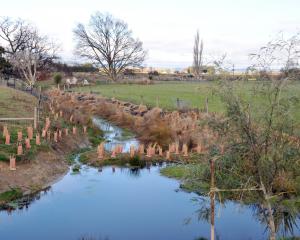Foreign ownership of New Zealand homes has been a flashpoint for many people as they watch house prices soar in Auckland and Queenstown.
Such ownership of large tracts of New Zealand’s back country has caused issues in Otago, although some benefits have been experienced through improved access by recreational users.
But it is the perceived foreign ownership of houses which has been the touchstone for parties making up the coalition Government — Labour, New Zealand First and the Greens. Each of the parties has, over the years, vehemently opposed foreign ownership in one form or another.
Prime Minister Jacinda Ardern campaigned before last year’s election on a promise to slow house-price growth and reduce high rates of homelessness, in part by banning foreign buyers.
Housing Minister Phil Twyford got himself into a bit of bother when highlighting the surnames of some of the home buyers in Auckland, when some of them were in fact New Zealand residents.
Last week, a Government Bill banning overseas buyers of existing homes passed its third and final reading in the House. Associate Finance Minister David Parker described it as a significant milestone demonstrating the Government’s commitment to making the dream of home ownership a reality for more New Zealanders.
The Government believes New Zealanders should not be outbid by wealthier foreign buyers. Whether it is a beautiful lakeside or ocean-front estate, the law ensures the market for homes is set in New Zealand and not on the international market.
The restrictions do not apply to buyers from Australia and Singapore, countries with a reciprocal agreement with New Zealand.
The Reserve Bank has played its part in trying to cool the heated Auckland housing market by bringing in lending restrictions, although the restrictions were almost meaningless for overseas buyers flush with cash.
The International Monetary Fund called on the Government in July to reconsider the ban, warning the move may discourage foreign direct investment necessary to build new homes.
Statistics New Zealand figures indicate the overall level of foreign home buying is relatively low — about 3% of property transfers nationwide. Even that low figure is being disputed, with property executives and Opposition politicians believing the figure is 1.5% to 2%.
The majority of buyers in Auckland and Queenstown are from China and transtasman neighbour Australia.
New Zealand has a housing affordability problem, fixable by increasing supply. Taking away foreign investment in one area, such as buying existing homes, seems likely to discourage foreign investors in building new dwellings. At least, that is the mantra coming from those opposing the Government’s legislation.
The select committee process heard from developers claiming they could not proceed with their projects because foreign investment had dried up.
The Real Estate Institute of New Zealand has been vocal about the Overseas Investment Amendment Bill, not believing the banning of foreign buyers from purchasing property in New Zealand is going to have any impact on house prices, nor help young people into first homes.
There will be no swaying the Government from its course of action. Evidence pointing to increasing the level of supply, speeding up consenting processes, creating consistency at councils around New Zealand and reducing Reserve Bank lending restrictions as a way of reducing prices cut no ice.
The Bill is aimed purely at those voters who still resent overseas ownership of anything in New Zealand while not acknowledging Kiwis can, in most cases, own assets internationally.
The true test will be how house prices react to the new legislation. If they fall, the Government will be lauded. If not, disgruntled first-home buyers will be asking some hard questions.












